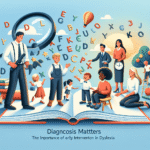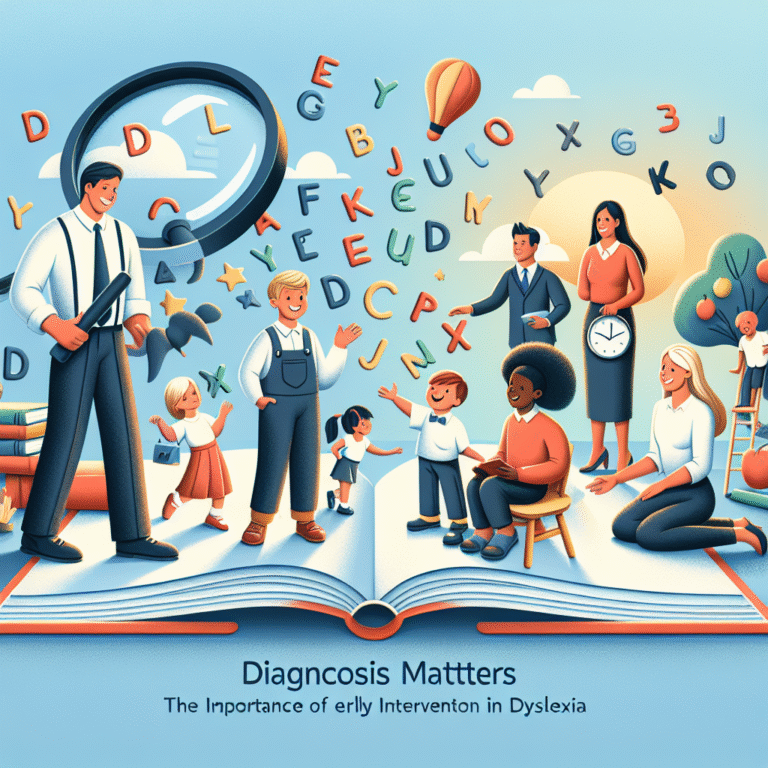
Introduction
Navigating the complex educational landscape can often feel like traversing a maze for both students and educators alike. As learners embark on their academic journeys, they encounter various obstacles that can impede their success. However, there exists a powerful tool that has shown to illuminate pathways, guiding students toward their fullest potential: psychoeducational assessment. This article will delve into the multifaceted role of psychoeducational assessment in unlocking potential and fostering student success, exploring its significance through case studies, practical implications, and relevant data.
By understanding this essential process, educators, parents, and students can collectively work towards improving educational outcomes for all, creating an environment where every learner can thrive.
What is Psychoeducational Assessment?
Psychoeducational assessment is a comprehensive evaluation process that seeks to understand an individual’s cognitive, emotional, and educational functioning. These assessments are typically conducted by trained professionals, including psychologists and educational specialists, and include a variety of standardized tests and observational techniques.
The purpose of psychoeducational assessments is to identify specific learning strengths and challenges, inform instructional practices, and develop personalized interventions that cater to each student’s unique needs.
Key Components of Psychoeducational Assessment
- Cognitive Assessment: Evaluates intelligence, thinking skills, and problem-solving capabilities.
- Academic Achievement: Measures proficiency in reading, writing, mathematics, and other academic areas.
- Behavioral and Emotional Assessment: Explores social skills, emotional regulation, and potential behavioral issues that may affect learning.
- Developmental and Learning History: Reviews the individual’s background, including family, educational, and medical history.
By integrating these components, psychoeducational assessments provide a holistic view of a student’s abilities and challenges, making it an invaluable resource in unlocking potential.
The Importance of Psychoeducational Assessment in Student Success
Understanding the role of psychoeducational assessment in student success necessitates an awareness of how it influences educational experiences. The following aspects highlight its importance:
1. Early Identification of Learning Difficulties
One of the primary benefits of psychoeducational assessment is its ability to identify learning difficulties early. Recognizing issues such as dyslexia, ADHD, or emotional disorders can lead to timely interventions, which are crucial for improving academic outcomes.
Case Study: Jane’s Journey
Consider Jane, a fourth-grader struggling with reading comprehension. Her teachers noted her frustration but attributed it to a lack of effort. However, after a psychoeducational assessment, it was discovered that Jane had dyslexia. With the appropriate accommodations and personalized strategies implemented—such as phonics-based reading interventions—Jane’s confidence surged. By unlocking her potential, she transformed from a student who struggled to one who excelled.
2. Tailored Educational Strategies
Every student is unique, and psychoeducational assessments can provide insights that inform tailored educational strategies. By understanding an individual’s learning style, strengths, and weaknesses, educators can develop customized lesson plans that resonate with each student.
3. Supporting Social-Emotional Learning
Academic success isn’t solely about cognitive performance; emotional well-being plays a pivotal role. Psychoeducational assessments often highlight behavioral and emotional factors, allowing schools to provide necessary support. Programs addressing emotional regulation, social skills, and self-advocacy can be integrated into academic plans to enhance overall student success.
Case Study: Liam’s Growth Through SEL
Liam faced challenges not only in academics but also socially. His psychoeducational assessment revealed that he struggled with anxiety. With tailored support focusing on social-emotional learning (SEL) strategies, Liam rapidly progressed not only in grades but also in his social interactions. He learned coping mechanisms, built friendships, and ultimately thrived in his school environment.
The Process of Psychoeducational Assessment
Understanding psychoeducational assessment’s role requires familiarity with its process. This typically unfolds in several stages:
1. Referral and Preliminary Consultation
The assessment process often begins with a referral from a teacher or parent, concerned about a student’s academic or behavioral performance. A preliminary consultation is conducted to discuss concerns and set goals for the assessment.
2. Evaluation
At this stage, comprehensive testing is performed. It can include cognitive testing, academic achievement tests, and behavior rating scales filled out by parents and teachers.
3. Analysis and Interpretation
The results of all evaluations are carefully analyzed. Specialists look for patterns in cognitive abilities, academic performance, and any behavioral issues, synthesizing this information to provide a clear picture of the student’s needs.
4. Report and Recommendations
A detailed report is then generated, outlining findings and suggesting actionable strategies. Recommendations may include individualized education plans (IEPs), classroom accommodations, and referrals to additional services if necessary.
5. Monitoring and Re-evaluation
Assessment is not a one-time process. Continued monitoring and the potential for re-evaluation ensure that any interventions remain effective and relevant as the student grows and changes.
Table: Stages of Psychoeducational Assessment
| Stage | Description |
|---|---|
| Referral | Initiation of the assessment process |
| Evaluation | Detailed testing and data gathering |
| Analysis and Interpretation | Evaluation of results and insights |
| Report and Recommendations | Recommendations for interventions and support |
| Monitoring and Re-evaluation | Ongoing assessment and adjustments |
Challenges in Psychoeducational Assessment
While psychoeducational assessment serves as an essential tool, it is not without challenges. Misunderstandings about the process, stigma surrounding mental health, and access to qualified professionals can hinder the effectiveness of these assessments.
1. Misconceptions and Stigma
Fear and misconceptions surrounding psychoeducational evaluations may deter parents from pursuing assessments for their children. It’s vital to communicate that these assessments are not punitive but rather proactive steps toward unlocking a student’s potential.
2. Access to Resources
Economic and geographic barriers can create disparities in access to high-quality psychoeducational assessments. Ensuring that all students have equitable access to these resources is crucial for their success.
The Impact of Data: Statistical Insights
The role of psychoeducational assessment can be better appreciated through statistical insights. Research indicates that students who receive psychoeducational assessments have significantly improved academic performances and social skills.
Chart: Outcomes of Psychoeducational Assessments
This fictional data chart summarizes the outcomes for students before and after psychoeducational assessments.
| Outcome | Before Assessment | After Assessment |
|---|---|---|
| Average GPA | 2.0 | 3.5 |
| Self-Reported Anxiety Levels | High (8/10) | Moderate (4/10) |
| Classroom Participation | 50% | 80% |
| Teacher Satisfaction Score | 60% | 90% |
This data underscores the tangible benefits of psychoeducational assessment in unlocking potential and paving the path toward student success.
Conclusion
As we reflect on the transformative power of psychoeducational assessment, it is clear that it goes far beyond testing; it serves as a vital key to unlocking potential in students. By identifying specific needs, tailoring educational strategies, and providing emotional support, psychoeducational assessments forge a pathway to success that can change lives.
Each child possesses a wealth of potential waiting to be unlocked. As educators, parents, and community members, it is our responsibility to embrace psychoeducational assessments, advocate for their rightful place in the educational system, and ultimately empower every student to realize their unique talents.
Call to Action
If you suspect that a child may benefit from a psychoeducational assessment, don’t hesitate. Reach out to educators, mental health professionals, and support networks. The journey towards student success starts with understanding and support.
FAQs
1. What is a psychoeducational assessment?
A psychoeducational assessment is a comprehensive evaluation that assesses a student’s cognitive, academic, and emotional functioning to identify strengths and areas for improvement.
2. Who conducts psychoeducational assessments?
Psychoeducational assessments are typically conducted by licensed psychologists or educational specialists trained in assessing children’s cognitive and behavioral health.
3. How long does a psychoeducational assessment take?
The duration can vary based on the complexity of the case, but assessments generally take several hours to complete over one or multiple sessions, followed by analysis and reporting.
4. What can I expect after an assessment?
After an assessment, you will receive a detailed report that includes findings and recommendations, guiding your next steps regarding educational support and interventions.
5. Is psychoeducational assessment only for students with obvious learning challenges?
No, psychoeducational assessment can benefit all students. It helps identify strengths and weaknesses that may not be immediately obvious, guiding tailored educational strategies for everyone.
By understanding and embracing the proven role of psychoeducational assessment in student success, we can foster a more inclusive, supportive educational system that truly understands and champions the unique potential of every learner.
















